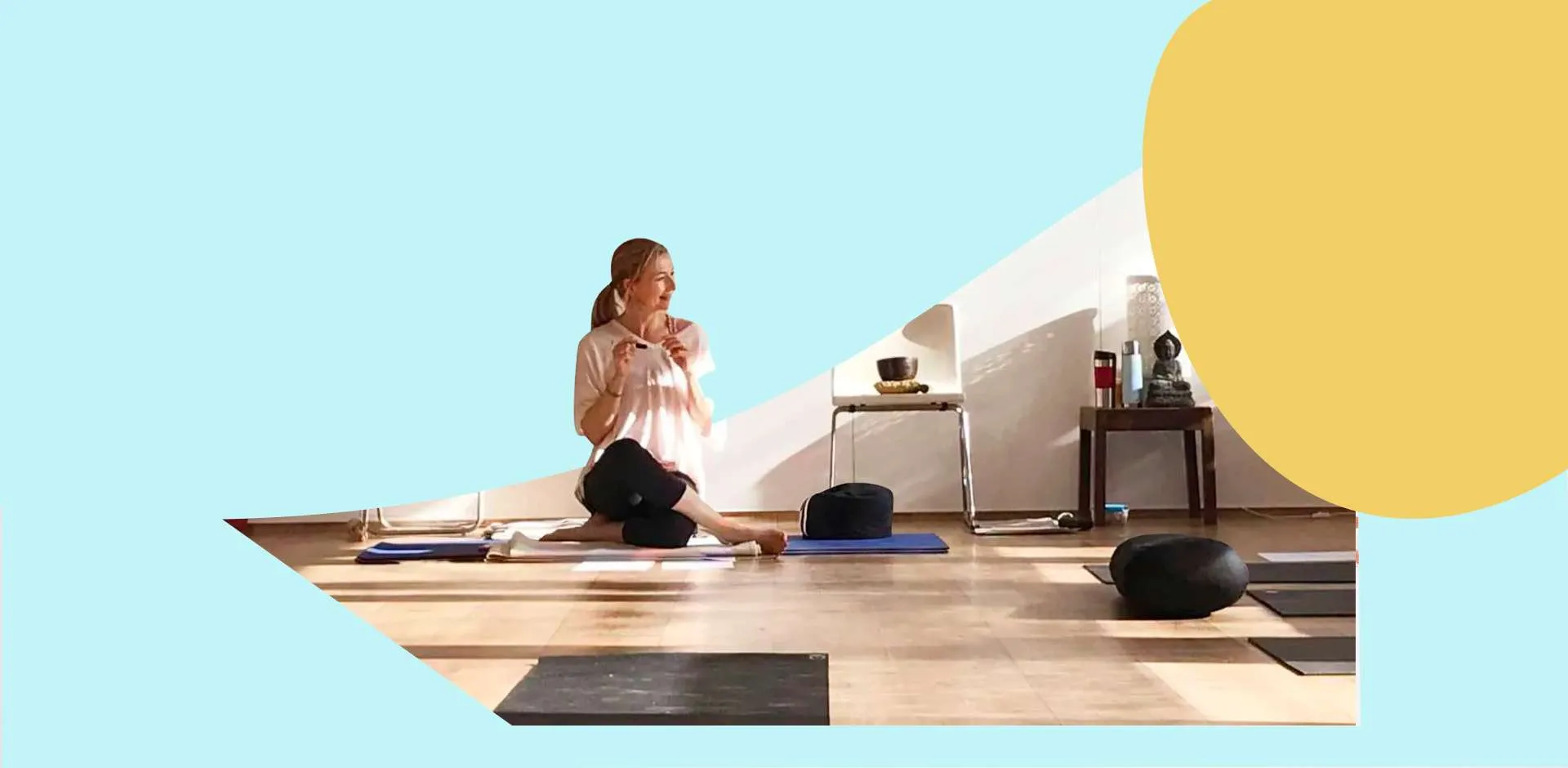Qualities of a Yoga Therapist: Compassion

The qualities of a Yoga Therapist are many and varied including adaptability, flexibility – not the physical type – curiosity, a soft sense of humour and compassion.
We talk about their qualifications and their ambitions and about the courses, but personally, I am more interested to hear about who they are. I like to engage in light conversation on where they come from, their families, and what makes them want to become a Yoga Therapist.
As a joke, I always say that ultimately, the main pre-requisite for being accepted at the school is “to be nice”. We have a good laugh about it, but this innocent joke is not far from the truth.
I have met many knowledgable – and famous – teachers and medical professionals who lacked the main quality that, in my opinion, a Yoga Therapist should have: a compassionate disposition.
Compassion is something that we can always offer to those who are in need. If you are someone who is hard and individualistic, only concerned with your own interests, working as a Yoga Therapist might not be for you.
Research on compassion
There is scientific evidence that good health, peace of mind, happiness and joy can be enhanced by feelings of love and compassion.
In one well-known experiment, David McClelland, a psychologist at Harvard University, showed a group of students a film of Mother Theresa working among Calcutta’s sick and poor. The students reported that the film stimulated feelings of compassion. When their saliva was analysed, it showed an increase in immunoglobulin-A, an antibody that can fight respiratory infections.
Regular volunteer work with others in a compassionate way increases life-expectancy. There is evidence that compassion and caring behaviour contributes to good emotional health.
At the other end, reaching out to others can induce feelings of happiness, peace of mind and less depression.
Another survey by Allan Luks revealed that the majority of helping volunteers reported a kind of “high” associated with helping others, so everyone wins.
That kind of “high” is often reported by our students when they start working with clients for the first time. I can confirm that after working for many years with hundreds of clients, I still get that feeling of excitement.
Many times I might start the day feeling sick, with a cold or a runny nose, and the moment I start teaching I somehow feel much better. By the end of the day, I forgot that I was feeling unwell.
Practice compassion
During our Courses, you will have plenty of chances to demonstrate your ability to care, starting with your fellow students. On a couple of rare occasions, I have observed in class a certain intolerance towards others, impatience when a student is slower than others.
Who hasn’t been to a yoga class where there seemed to be an atmosphere of high performance and “no room for losers” environment? Yoga Therapy is the absolute opposite of intimidating. It is warm, welcoming, and understanding. Especially to those who are a bit slower!
Yoga Therapy is an inclusive practice, where everyone is welcome no matter their race, gender or background. We encourage our students to practice this simple principle of compassion, from the start of the course.
Compassion comes naturally to some people, but it can also be a quality that can be nourished and developed. You don’t have to be a Yoga Therapist for that.
We live in a hard world that makes us tough and inconsiderate to others. If we show too much attention or care, we might come across as weak and people might even try to take advantage of us. There is a general belief that compassion is for little old ladies from the Salvation Army.
But it is not. Compassion is in fact within our true nature and an important part of a survival mechanism. Without compassion, there would be no neighbourhoods, no communities, no hospitals, no schools. Without compassion, we would not survive as a human race.
 Meditation for compassion
Meditation for compassion
- Begin by visualising a person you know who is currently suffering, physically or emotionally, or who is in an unfortunate situation. For a few minutes, reflect on their suffering.
- After this, see that person suffering and feeling pain in the same way as you do. See this person as someone like you. So you understand them.
- Then allow yourself to feel a natural response of feeling compassion towards that person. Wish for that person to be free from suffering.
- Place your mind in a simple resolve to help them be relieved from heir suffering.
- Finally, meditate for a few minutes on a feeling of love and compassionate state.

Compassion in Yoga Therapy
The ultimate purpose of a Yoga Therapy course should not be to obtain a diploma that you can hang on your wall. In these days, a diploma is easy. Qualifications are everywhere, and anyone can qualify in Yoga Therapy or any other discipline anywhere in the world.
The main reason why we do this is so that you can integrate this vast knowledge which comes from study, practice, and years of experience, into your own life. And when you are ready, you can share it in a safe and respectful manner, with those who need it.
Now that doesn’t sound so easy. In fact, there is not enough space on the wall to hang that.
This main quality of compassion needs to be nourished, and your best intentions will be challenged on endless occasions as you work on the mat with your own case studies. You will work with real people, who will come to you suffering from various physical and emotional issues. People just like you, who will reflect your own flaws and fears.
The confronting part
Could you feel compassion when someone admits being hurtful to others, maybe to their own children, or their spouse? How to be compassionate, when someone confronts the very basis upon which you build up your own beliefs.
Could you take care of a butcher if you are vegetarian? Can you listen to someone who prays in a different religion to yours, and can you give attention to a selfish, self-centred person? Do you understand that someone might want to take their own life?
When you work as a Yoga Therapist, your boundaries are tested all the time. And it is in those moments when compassion needs to glow warmer than ever. The biggest rewards I have ever received in this work have been when I persisted in my compassion and stood by my belief that there was something good inside a person’s heart.
Even years later, the transformation happens. Of course, I had doubts many times. And many times people warned me not to be so kind to a client who was being hard and difficult, but it always worked out, in some way or another.
You will know yourself because when you bump into an old client, years from now, they will not praise you for how you taught them to do a good Adho Mukha Svanasana.
*By the way, there is not much point in confusing your clients with all those Sanskrit words, but that is for another article.
They will remember you for how they felt when they were with you. How you listened, and how they felt heard. How they felt understood and how you were there for them through hard times. Some people remember the tea with honey, the warm smiles and the lovely smell in your room.
No one forgets compassion. It is the first quality of a Yoga Therapist, and one that benefits everyone: those who give it and those who receive it.

 Meditation for compassion
Meditation for compassion







